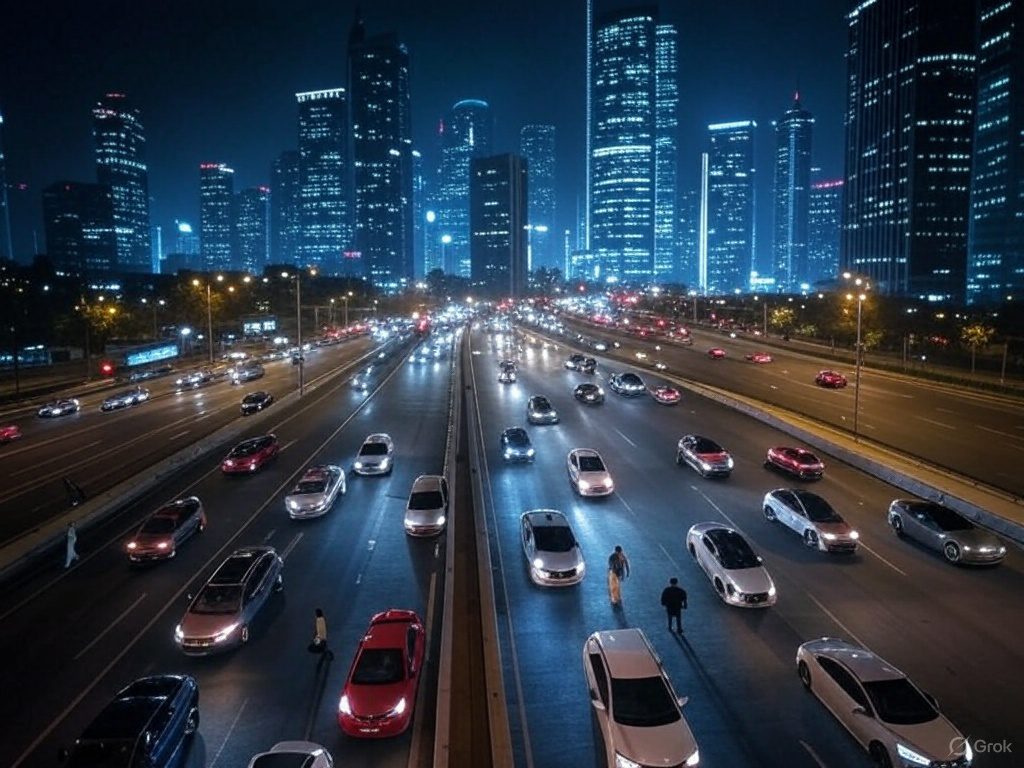The AI Revolution in Traffic Safety: A Glimpse into Tomorrow’s Roads
Introduction: Why Does AI Matter for Road Safety?
Each year, around 1.3 million people lose their lives in traffic accidents (WHO), and countless more are injured. Even with better cars and roads, human mistakes remain a big challenge. Enter Artificial Intelligence (AI)—an innovation helping us spot risk factors and actually prevent accidents from happening. From “smart” traffic lights to cameras that sense distracted driving, AI is changing how we think about road safety.How AI is Changing Everyday Driving
In many modern cars, AI powers features like:- Automatic Emergency Braking: Sensors detect possible collisions and apply brakes if you don’t.
- Lane-Keeping Assistance: Alerts you or takes gentle control when you drift out of your lane.
- Adaptive Cruise Control: Maintains a safe distance from other cars automatically.
Traditional Safety Tools, Smarter Than Ever
Even basic items like traffic cones, barriers, barricades, and drums have joined the AI revolution. Cities are experimenting with “smart” versions that can:- Flash warning lights when vehicles approach too closely.
- Send real-time alerts to traffic authorities when moved or knocked over.
- Adjust placement based on accident data, weather, or local traffic patterns.
Case Study: Making City Streets Smarter
Pittsburgh introduced an AI traffic system called Surtrac (Surtrac), which adjusts traffic lights in real-time. Commuters in busy intersections saw 25% shorter travel times and 40% less idle time at red lights. This concept can extend to managing lane closures or placing “smart” cones and safety cones at critical spots, letting authorities respond quicker to unexpected congestion or incidents.Looking Ahead: A Blend of AI, Data, and Common Sense
As cities invest more in AI, we can expect:- Seamless Traffic Flow: From highways to side streets, signals will “talk” to vehicles and guide them safely.
- Safer Work Zones: “Smart” cones and barriers will actively warn drivers of hazards.
- Personalized Driver Alerts: Systems will learn individual driving habits and warn you of mistakes before they happen.
Conclusion: A Future with Fewer Accidents
AI offers hope that traffic accidents could someday be as rare as they once were common. By blending real-time analysis, better driver assistance, and “smart” versions of the cones and barriers we’ve relied on for decades, we can dream of roads where serious crashes are the exception, not the rule. It won’t happen overnight, but the work is already underway. With continued innovation, public support, and clear policies, the journey toward safer roads—and potentially zero deaths—is within reach.References
- World Health Organization. (2018). Global Status Report on Road Safety. Retrieved from who.int
- Rapid Flow Technologies. (n.d.). Surtrac. Retrieved from surtrac.net
Learn more about traffic cones, traffic signs, barriers, high-visibility gear and other traffic safety solutions at TrafficSafetyStore.com. You can also explore our wide range of Safety Vests and High-Visibility Apparel to find the right fit for your specific needs.

